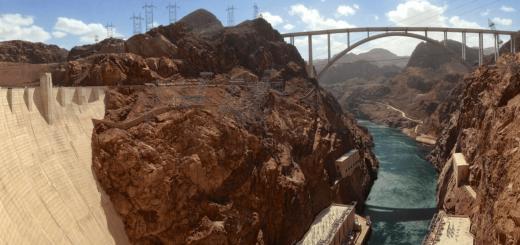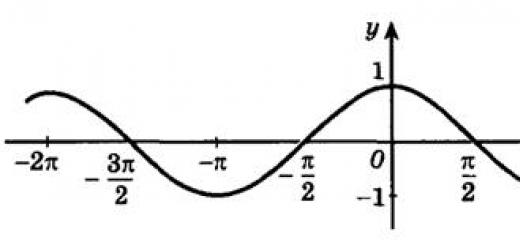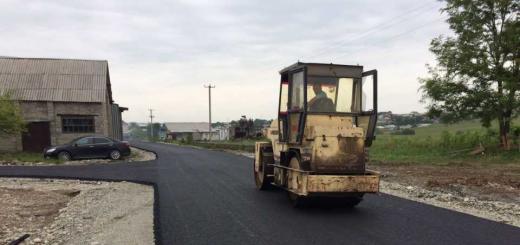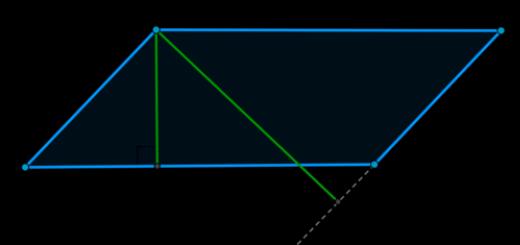After graduating from grade 9 or school, many graduates face a choice: what to do next? Go to work or continue education? And if you continue your education, then where: at a university, technical school or college? If you have to choose between a technical school and a college, which is better to choose? What is the difference between college and technical school?
After graduating from grade 9 or school, many graduates face a choice: what to do next? Go to work or continue education? And if you continue your education, then where: at a university, technical school or college? If you have to choose between a technical school and a college, which is better to choose? And generally speaking, what is the difference between college and college?
What is the difference between college and technical school
The Model Regulations on a secondary specialized educational institution (an educational institution of secondary vocational education) give a clear definition of such concepts as "college" and "technical school":
- college- a secondary specialized educational institution that implements professional educational programs of basic and advanced training;
- - a secondary specialized educational institution that implements professional educational programs of basic training.
In other words, and technical school and college provide basic knowledge in the chosen specialty. The only difference is that in the college there is a mandatory emphasis on in-depth training in the specialty and therefore the learning process can last up to 4 years, while in a technical school it can take up to 3 years.
It is also necessary to note one more imperceptible to uninitiated people, but a very significant difference between a college and a technical school. College graduates who want to continue their education in a higher educational institution are more prepared than graduates of technical schools. This is explained not only by in-depth training in the specialty, but also by the fact that many colleges are based on the basis of universities. That is, in colleges very often lectures are given by university teachers, and final exams are equated to entrance exams to a higher educational institution. If a college is not founded on the basis of a university, then it usually has a contractual relationship with a certain university, due to which college graduates are provided with benefits upon admission.
Which is better, technical school or college
Based on the foregoing, it becomes clear that technical schools are mainly engaged in the training of specialists of a professional basic level, that is, professional skilled workers. At the same time, colleges train specialists of a higher class, while the choice of specialties in colleges is much wider than in technical schools.
So if you or your child can't decide which is better technical school or college, you must first decide what you want. If your plans are limited to obtaining a working specialty, albeit in demand, then you can opt for a suitable technical school. If you plan not only to get a specialty, but also to continue your education in the future, then it is best to choose a college.
In addition, when choosing between a college and a technical school, one must take into account the fact that colleges offer a greater variety of specializations, not only technical, but also creative or highly specialized (for example, designer, lawyer, etc.).
Where is it better to continue education, at a university or college / technical school
When choosing between higher and higher education, it is necessary to clearly understand that universities provide education based on theory, while colleges and technical schools focus on practice. In other words, after graduation you will be a certified specialist, but without work experience, so you will have to start your career in any company with almost zero. But graduates of colleges and technical schools can, immediately after employment, apply for a salary of the appropriate level, since they will already have work experience and a sufficient level of knowledge behind them.
The educational system of our country is undergoing some changes today, however, despite the fact that educational institutions of a new type are emerging, the old ones, familiar from the Soviet era, remain no less relevant and are very popular among students. Applicants (and not only them) often confuse the concepts: technical school, college, college. Let's see what are their similarities and what are their differences.
Of course, higher education institutions are in the first place in the popularity rating, but colleges are in second place. Now, when the first stage of higher education is a bachelor's degree, and not a specialty, secondary specialized education can become quite equivalent in terms of the amount of knowledge, skills, and practice gained. Students begin to think: is it necessary to spend 4-6 years on getting a higher education, if you can get a specialized secondary education in 2-3 years and be in the same demand on the labor market? In fact, it all depends on your personal mood, desires and goals in life. Although, indeed, recently the colleges have been quickly adapting to changes in the labor market and are paying much more attention not to theory, but to practice.
What is a college?

 You can go to college on the basis of a certificate of basic general education (after 9 classes), on secondary full education (after 11 classes), in addition, a diploma of primary vocational education (vocational school, vocational lyceum), a diploma of secondary vocational education .
You can go to college on the basis of a certificate of basic general education (after 9 classes), on secondary full education (after 11 classes), in addition, a diploma of primary vocational education (vocational school, vocational lyceum), a diploma of secondary vocational education .
In college, training takes place for 2-3 years, but this period may vary depending on what specialty you have chosen and with what document you entered (for graduates of grade 9, training lasts 4 years).
College students, having entered an educational institution, receive a student card, a record book. And upon graduation, they receive a diploma of secondary vocational education. This diploma gives the right to immediately get a job or enter a university on preferential terms under an abbreviated program of study.
Another educational institution is a technical school.
 In technical schools, as a rule, the main professional educational programs of secondary specialized education are implemented at the basic level. Education in a technical school lasts no more than 3 years, sometimes - two years.
In technical schools, as a rule, the main professional educational programs of secondary specialized education are implemented at the basic level. Education in a technical school lasts no more than 3 years, sometimes - two years.
Technical schools can be of three types:
1. State educational institutions of secondary vocational education.
2. Non-state educational institutions of secondary vocational education.
3. Autonomous non-profit organizations of secondary vocational education.
They are admitted to a technical school on the basis of a certificate (graduation of grades 9 and 11), in addition, the results of the USE and GIA are taken into account. Remember that studying at a technical school does not give you the right to deferment from military service.
By the way, if in a college everything is arranged like in a university: lectures, seminars, then in a technical school it is more and more close to the school form of education.
Vocational school - an echo of the past?
 Vocational and technical schools (vocational schools) have been known since the times of the Russian Empire, they were only then called FZU and vocational schools. Vocational schools provide primary vocational education. Admission is conducted on the basis of a certificate of completion of 9 or 11 grades of the school. The term of study at a vocational school ranges from six months to three years. Recently, vocational schools have been reorganized simply into vocational schools, into higher vocational schools.
Vocational and technical schools (vocational schools) have been known since the times of the Russian Empire, they were only then called FZU and vocational schools. Vocational schools provide primary vocational education. Admission is conducted on the basis of a certificate of completion of 9 or 11 grades of the school. The term of study at a vocational school ranges from six months to three years. Recently, vocational schools have been reorganized simply into vocational schools, into higher vocational schools.
In general, in technical schools, colleges and schools you can master and get almost any profession, and then go to study further or get a job.
Children who choose an institution of secondary vocational education need to understand the question of how a college differs from a technical school in order to understand all the nuances of education. The end of the ninth grade is an important stage in the life of every student. The teenager receives a certificate, and now he has to decide where exactly he will study next. Will it be the tenth-eleventh grades at school, college or technical school.
Quite often, children choose an institution of secondary vocational education, after which they can enter a university, or they can immediately go to work in their specialty. However, both children and parents do not always understand the difference between educational organizations. What is the difference between college and technical school?
What is a technical school?
Today, technical schools are educational organizations in which young people are trained in secondary vocational education programs as part of basic training.
Students of the technical school receive basic knowledge, consolidate them in practical classes. Children can enter the technical school after the ninth or eleventh grade. The duration of training can be different, it depends on the specific specialty, usually it is two or three years. The educational process is close to school.
The specificity of the technical school is that it is more aimed at teaching working professions, the program is highly specialized. Education at the technical school ends with the award of a diploma of secondary vocational education. Also, the graduate is awarded the qualification of a technician in a particular professional field.
What is a college?
A college is an organization in which programs of secondary vocational education are carried out within the framework of both basic and advanced training.
Studying in college, the guys get more theoretical and in-depth knowledge in a certain professional area, study takes about three to four years.
The educational process in college is reminiscent of studying in higher education institutions: students study by semesters, listen to and take notes on lectures, take tests and exams at sessions. You can enter colleges after the ninth or eleventh grade.
Colleges offer a wide variety of technical or creative programs. After graduation, the children are issued diplomas of secondary vocational education, as well as a document on the qualification in a particular professional field.
Today, there are many colleges organized at institutions of higher education. The leadership of universities and colleges conclude bilateral agreements. University professors conduct classes at a secondary vocational education institution, and quite often the final certification at the college is counted as an entrance test at the university. One of the most serious privileges of the college is the possibility of entering a university without passing the exam. In addition, college graduates entering the university for programs that are a continuation of the completed educational material can study at the university on an abbreviated program.
So, the differences between studying at a technical school and college:
- duration of study: in colleges - three or four years, in technical schools - two or three years (for those who entered after grade 11), three to four years (after grade 9);
- organization of education: in technical schools, study is built on the example of a school, and in colleges it is more like a university;
- level of training: technical schools provide only a basic level, and colleges provide an average level and a higher one;
- the orientation of educational programs: purely practical in technical schools, and in colleges - both practical and theoretical.
Where is the best place to study?
After graduating from a technical school, a graduate can only qualify as a technician, and after graduating from a college, you can get a higher level qualification - a senior technician.
Types of professions: in technical schools - only working specialties, and in colleges - working and creative.
Thus, we can conclude that many aspects of these institutions of secondary vocational education are similar, but the actual process of vocational training in technical schools and colleges contains significant differences.
In colleges, the level of vocational education can be basic and advanced, while in technical schools it is only basic. Russian technical schools are more highly specialized, aimed at teaching only working specialties.
Now, when the Russian education system is gradually moving to a two-stage model (the Bologna system), secondary vocational education in a college can be equated to a bachelor's degree. This will be an excellent substitute for higher education.
Which educational institution to choose, college or technical school, is up to you and your child to decide, based on your plans for further educational routes. In any case, such a decision should be made after carefully considering all the nuances of training in a particular institution.
Undoubtedly, a good education is highly valued at the present time. And school graduates face a difficult choice, because everyone knows that the school is far from the last step in the educational process. Finishing the 9th grade, young people and their parents need to decide what is best to do: continue their education at school for another two years or enter institutions of secondary vocational education. If a decision is made to leave the school walls and acquire new knowledge outside of it, then there are two options for a suitable educational institution: technical school or college.
This article will help clarify unclear points and answer such an urgent question, concerning primarily the younger generation.
So, for starters, let's look at what technical schools and colleges are.
The technical school is an educational institution where you can get secondary vocational education. Technical schools are mainly based on the acquisition of practical knowledge. Accordingly, these educational institutions specialize more in working specialties of a rather narrow profile. Graduates have all the necessary skills to apply the acquired knowledge in their future work. The duration of study in technical schools varies from two to three years.

Education in technical schools is aimed at obtaining basic training, and after the expiration of the training period, they receive a diploma with the appropriate qualification "technician".

Colleges
Colleges are educational institutions that provide secondary vocational education more in-depth compared to technical schools. Education here lasts a little longer, from three to four years. This is due to the fact that colleges allow their students to thoroughly understand the chosen specialty. The first three years are the basic level of training, and the fourth is based on in-depth study of subjects.

Colleges have a wide range of specialties, not only workers, but also the humanities. College students receive a lot of theoretical knowledge, while almost no attention is paid to practical skills. This methodology is similar to the university one: lectures, seminars and sessions are held.
Graduating from colleges, young specialists receive the qualification of "senior technician".

What is the difference between technical schools and colleges?
Despite similarities, colleges and technical schools have significant differences:
- The duration of study at a technical school is from 2 to 3 years, and at a college from 3 to 4 years.
- Education in the college is similar to the university, and in the technical school with the school.
- The choice of specialties in the college is much wider than in the technical school. After all, the technical school produces working specialists, and, accordingly, specialties are mainly technical.
- The level of training and qualifications in the college is higher than in the technical school.

So what is better to choose: college or technical school?
It is impossible to answer this question unambiguously, since the choice between these educational institutions largely depends on the goals pursued by future students and their parents. Who wants to spend precious years getting the coveted education certificates and sitting all day long at boring lectures? If you want to start living an independent life as soon as possible and earn your own living, then you should stop at entering a technical school.
Three years (in some cases, two) will fly by unnoticed, but it will be received working specialty. Indeed, in recent times there has been a lack of skillful hands, most tend to office, so to speak, “dust-free” work. And with a technical education, on the contrary, it is possible to build a successful career. Do not forget that engineers, builders, miners have always been and will be in good standing.
But if someone is not attracted to working professions, or if they simply seem boring, then it is better to choose colleges. After all, going to college, you can find a profession to your liking. Currently, there is a wide variety of recommended specialties. The undoubted advantage of studying at a college is the possibility of simplified admission to a higher educational institution in the future.
Many colleges have certain agreements with universities, drawing up the curriculum on their basis, many subjects are taught by teachers from universities. As a rule, having a college diploma in hand, a student has the opportunity to immediately enter the second year of a higher educational institution. Colleges involve the receipt of basic education (lasts for the first three years), and in-depth, based mainly on the acquisition of practical skills (for this you need to learn 4 years, instead of 3).
Both colleges and technical schools assume admission on the basis of both 9th and 11th grades. A good addition to the choice of secondary schools is the possibility of obtaining a deferment from the army. In 2017, there were changes in the legislation allowing young people to graduate from a technical school or college upon admission after grade 11. Previously, such an opportunity was not given. This nuance should please citizens of military age.

The college sounds more prestigious than the technical school, so many people prefer the first option. But both there and there, with the proper professionalism of the leadership and teaching staff, you can get an excellent experience necessary for further employment.
It is impossible to predict everything in advance, a lot depends on the prestige of a particular institution, the cost of education, the availability of budget places. It is advisable to choose institutions that have state accreditation. In this case, in the event of various unforeseen circumstances, many unnecessary problems can be avoided.
However, before making a decision, you need to study all the necessary information, weigh all the factors. After all, it is better to prepare in advance than to regret the wrong choice later.
Among the most common types of secondary educational institutions in Russia are colleges and schools. What are they?
What is a college?
Under college It is customary to understand a secondary educational institution in which disciplines are taught within the framework of programs that involve in-depth study of a particular subject, and, moreover, as a rule, of a predominantly theoretical orientation.
College
The duration of college education is about 4 years. Many of the educational institutions of this type enter into agreements with universities, within the framework of which the curricula are drawn up in such a way that it would be easier for graduates to subsequently receive higher education in the relevant specializations.
Quite often, colleges are structural divisions of universities, and this allows them to even better prepare students for continuing their studies: this can be seen in the application of similar conceptual principles for organizing training, and also, for example, in the fact that many classes in colleges are conducted by university professors.
A student in an institution of the type in question, therefore, like a university student, can attend lectures, seminars, take exams at sessions at the end of semesters, and have a record. Some universities give certain preferences to graduates of their colleges for admission and training.
What is a school?
Any school It is also a secondary school. But depending on the specific historical period, institutions of various types could correspond to this term.
 school
school In the USSR and for some time in post-Soviet Russia, vocational schools, or vocational schools, were widespread. In them, citizens were trained mainly in working specialties. Subsequently, vocational schools were renamed into vocational schools, that is, vocational schools, some - into lyceums.
In the modern Russian (as earlier - in the Soviet) educational system, medical schools are also being established, institutions in which people study to become teachers and educators.
All types of schools are focused on obtaining practical knowledge by students. A person, having completed a course at an appropriate educational institution and received a document confirming this, should be able to immediately begin work in his specialty.
The terms of study in schools of different profiles can vary significantly. Usually in PU they are about 2 years, which is significantly shorter than in lyceums, medical and pedagogical schools, where the terms of study approximately correspond to those established for colleges.
The organization of the educational process in schools, as a rule, is quite close to that which characterizes education in colleges and, accordingly, universities. But since the institutions in question are usually independent of universities, the curricula in them can be very specific, often they are not adapted to the subsequent receipt of higher education by the graduate to the same extent as in colleges.
School graduates usually do not have any advantages when entering universities. But, of course, the knowledge gained by them can greatly facilitate their educational process in the future - if the specialty at the university is the same or similar to that obtained at the school.
Comparison
The main difference between a college and a school is that in the first educational institution they teach mainly theoretical knowledge, in the second - practical knowledge.
A college is usually closer to a university than a college in terms of the organization of the educational process, and this is largely due to the fact that the corresponding secondary educational institution is a subdivision of a higher education institution.
Curricula in some schools have a significantly shorter duration than in colleges - especially for PU.
It can be noted that the profile of education in colleges is almost always humanitarian. Schools, if we do not consider institutions of a pedagogical and medical profile, often offer applicants to undergo training in technical specializations.
Having determined what is the difference between college and school, we will reflect the conclusions in the table.
Table
| College | school |
| What do they have in common? | |
| Colleges and schools - secondary educational institutions | |
| What is the difference between them? | |
| Most colleges teach liberal arts. | Many schools teach technical knowledge |
| Assume training mainly in theoretical programs | Provide practical training |
| Duration of study in colleges - about 4 years | Duration of study in some schools - 2 years |
| Often they are departments of universities | Rarely enough are departments of universities |
| The educational process in colleges is similar to that organized in universities | The educational process in schools may have little in common with education in universities. |










